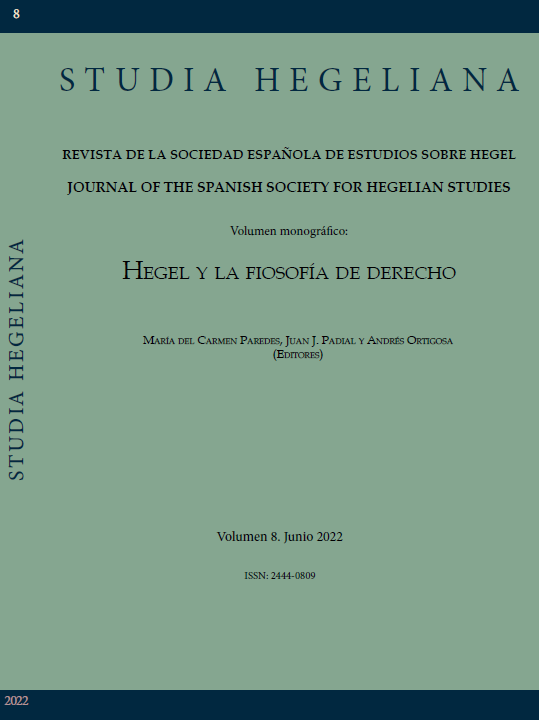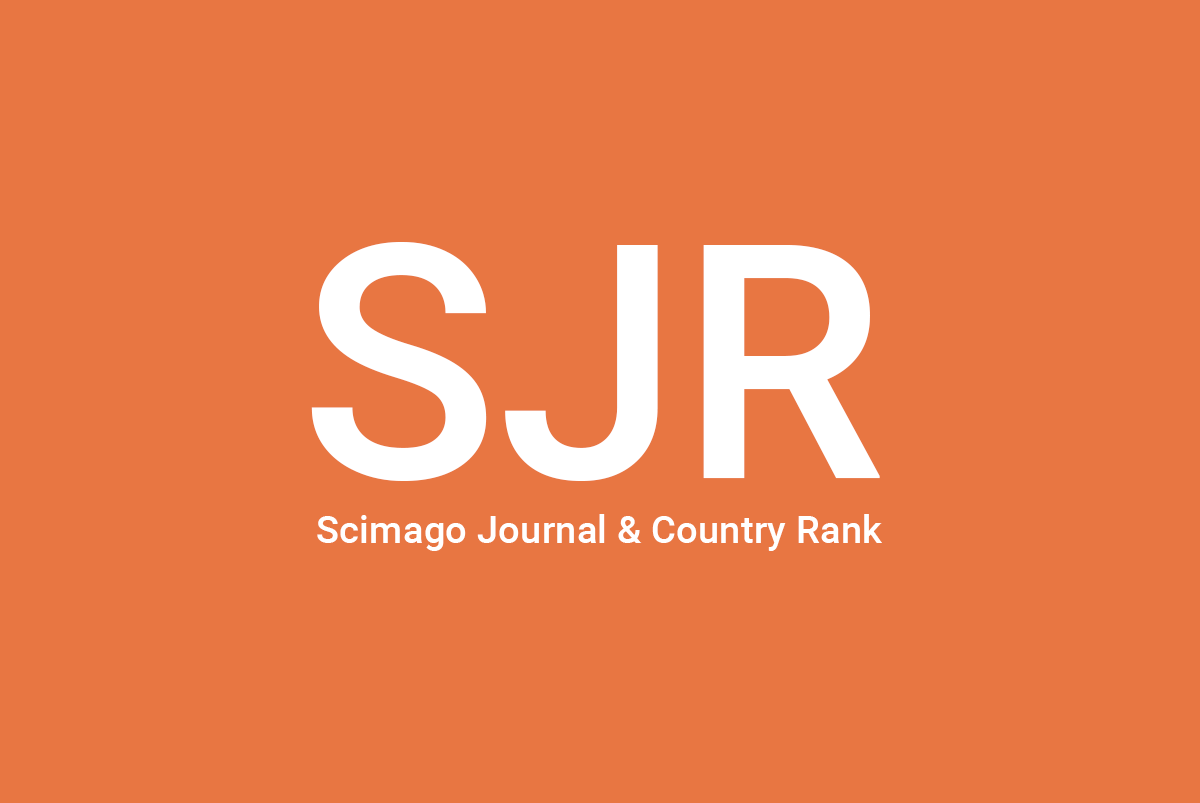Hegel’s Cartesian Grounding of Political Philosophy
DOI:
https://doi.org/10.24310/Studiahegelianastheg.v8i.13969Palabras clave:
Hegel, Descartes, filosofía política, totalidad, sustanciaResumen
Hegel consideraba que la filosofía moderna estaba internamente dividida entre su metafísica y epistemología, por un lado, y su filosofía política, por otro. Descartes había desarrollado una metafísica de la totalidad para fundamentar la certeza epistemológica del cogito, tratando la unidad verdadera como una unidad de contrarios (una totalidad). Pero la filosofía política, en sus formas empirista y formalista, se basaba en una concepción empobrecida de la unidad, tratándola, respectivamente, como una mera agregación de partes o como una consistencia formal. La Filosofía del Derecho trató, pues, de subsanar las deficiencias de la filosofía política basándose en el concepto cartesiano de totalidad.
Descargas
Métricas
Publicación Facts
Perfil de revisores N/D
Información adicional autores
Indexado: {$indexList}
-
Indexado en
- Sociedad Académica/Grupo
- N/D
- Editora:
- Universidad de Málaga
Citas
- Lectures on the History of Philosophy: The Lectures of 1825-26, v.3, trans. R.F. Brown and J.
M. Stewart, with H.S. Harris, ed. R.F. Brown. Berkeley: University of California Press,
1990.
- Natural Law: The Scentific Ways of Treating Natural Law, Its Place in Moral Philosophy, and
Its Relation to the Positive Sciences of Law, trans. by T. M. Knox. Philadelphia:
University of Pennsylvania Press, 1975.
- Elements of the Philosophy of Right, trans. H.B. Nisbet, ed. Allen W. Wood. New York:
Cambridge University Press, 1991.
- Enzyklopädie der philosophischen Wissenschaften im Grundrisse, I-III, in TWA 8-10.
- Science of Logic, trans. George di Giovanni. Cambridge: Cambridge University Press, 2010.
- Werke in zwanzig Bänden. Auf der Grundlage der ‘Werke’ von 1832-1845 neu edierte
Ausgabe, hrsg. v. Eva Molden¬hauer und Karl Mar¬kus Mi¬chel. 20 vols. Frankfurt/M:
Suhrkamp 1970 (Theorie-Werkausgabe Hegels). Cited as “TWA,” followed by the
volume number; the page number follows the comma.
Other References
Abazari, Arash: Hegel’s Ontology of Power: The Structure of Social Domination in Capitalism.
Cambridge: Cambridge University Press, 2021.
Descargas
Publicado
Cómo citar
Número
Sección
Licencia
Esta revista provee acceso libre inmediato a su contenido bajo el principio de hacer disponible gratuitamente la investigación al público. Todos los contenidos publicados en Studia Hegeliana. Revista de la Sociedad Española de Estudios sobre Hegel, están sujetos a la licencia Creative Commons Reconocimento-NoComercia-Compartirigual 4.0 (específicamente, CC-by-nc-sa) cuyo texto completo puede consultar en <http://creativecommons.org/licenses/by-nc-sa/4.0>. Por ello, se permite la generación de obras derivadas siempre que no se haga un uso comercial. Tampoco se puede utilizar la obra original con finalidades comerciales. La revista no se hace responsable de las opiniones vertidas por lo autores de los trabajos que en ella se publican.
Es responsabilidad de los autores/as obtener los permisos necesarios de las imágenes que están sujetas a derechos de autor.
Los autores/as cuyas contribuciones sean aceptadas para su publicación en esta revista conservarán el derecho de autor. Este es no exclusivo de utilizar sus contribuciones con fines académicos, de investigación y educativos, incluyendo el auto-archivo o depósito en repositorios de acceso abierto de cualquier tipo.
Desde el volumen 7 de 2021 la revista Studia Hegeliana ha modificado el copyright. Desde ese año, los autores son los que conservan los derechos de autor.
La edición electrónica de esta revista esta editada por la Editorial de la Universidad de Málaga (UmaEditorial), siendo necesario citar la procedencia en cualquier reproducción parcial o total.







243.png)






















